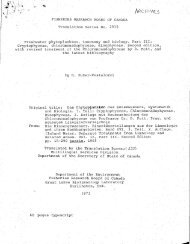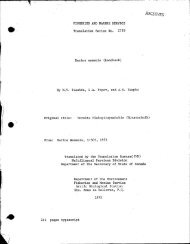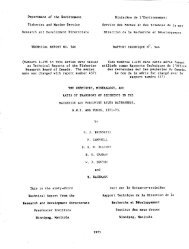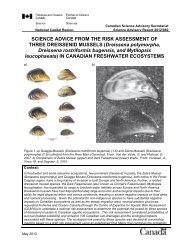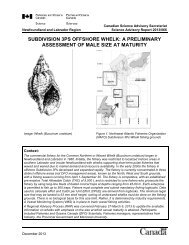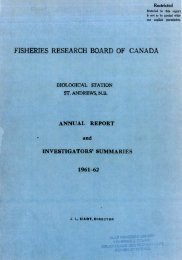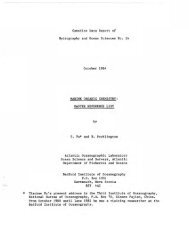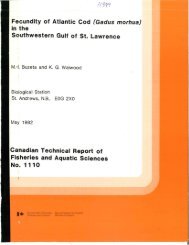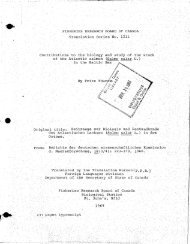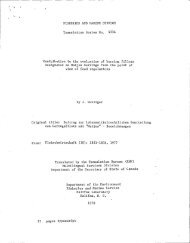Translation Series No.997
Translation Series No.997
Translation Series No.997
Create successful ePaper yourself
Turn your PDF publications into a flip-book with our unique Google optimized e-Paper software.
11.<br />
Up to maximum ration the assimilation dropPed much more<br />
slowly than the ration was increased, and the growth P was<br />
tripled.<br />
The case where assimilation remains constant while<br />
the ration is increased cari be explained by the tendency "to<br />
sacrifice efficiency for greater production" (Odum and Pinkerton,<br />
1955). Lotka (A.J. Lotka, 1925) suggested the law of<br />
energy maximum for biological systems. He considers that the<br />
most important factor in the survival of the organism is the<br />
great expenditure of energy in the form of product;<br />
he calls<br />
the greatest yield of product the criteria for survival of<br />
systems of different types. Insofar as the efficiency of<br />
utilization of food is concerned, this is usually expressed<br />
by small values. Odum and Pinderton have demonstrated very<br />
well in a model of anEnergy system that even under the best<br />
conditions the ratio of growth to ration does not exceed 50%.<br />
A study of the coefficient of utilization of food for growth<br />
by young growing stages of some aqueous creatures (protozoa,<br />
worms, mollusks, fish) gave almost coincident values which<br />
fluctuated around 30%, which goes to prove that these values<br />
are stable and change little even with changes in temperature<br />
over a very wide interval (Ivlev, 1937, 1938). In those natural<br />
communities where there is little food, a more efficient utilization<br />
of food by organisms predominates.<br />
CONCLUSION<br />
/512<br />
A relative value for diurnal growth in population,<br />
equalling 175% wa<br />
obtained during laboratory cultivation of<br />
rotifer Brachionus calyciflorus Pallas. The purpose of the



